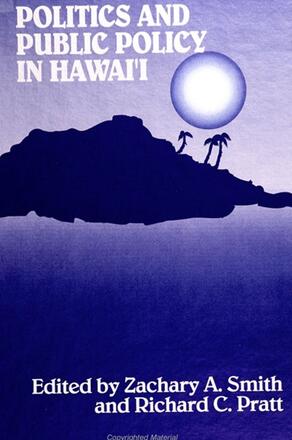
Politics and Public Policy in Hawai'i
Alternative formats available from:
Description
Hawai'i is of special interest as a state because its history differs so greatly from that of the other United States and because its social and political institutions are unique. It is, for example, the only state that has no incorporated villages, towns, or cities, and it has the most centralized system of governance of any U. S. state.
This book addresses policy topics of importance to Hawai'i and other communities facing rapid growth, unsettling change, and a new economic environment. The authors describe the policy formation process characteristic of the island state, the formal institutional environment, and significant policy issues. The latter include social and ethnic dynamics, land use, housing, crime, natural resources, budgetary politics, and the situation of contemporary Hawai'ians. The chapters are tied together by the comparative, historical, and prospective approach that characterize each analysis, and by the interpretive comments of editors Smith and Pratt.
Zachary Smith is Director of the Public Administration Program and Associate Professor of Political Science and Public Administration at Northern Arizona University. Richard Pratt is Director of the Public Administration Program and Associate Professor of Political Science at the University of Hawai'i at Manoa.